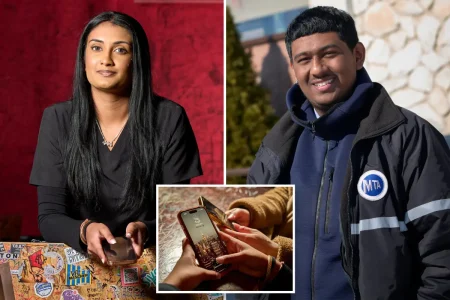Rocked World’s Marital Crisis and Path to Recovery:
Rocked World, a California resident, finds herself in a devastating situation after discovering her husband’s decade-long infidelity and financial betrayal. The revelation that he maintained relationships with multiple women while siphoning their family’s savings has left her emotionally shattered. Compounding the pain is the fact that they have two disabled adult children and one neurotypical adult child, increasing her sense of responsibility and making it difficult to leave the marriage. A year after the discovery, Rocked World’s emotional state has deteriorated significantly. She experiences severe anxiety, insomnia, and constant crying spells, her nights filled with restless wandering rather than sleep. Her husband’s blame-shifting further exacerbates her pain, leaving her feeling trapped and betrayed. The need to protect her children from the truth adds another layer of complexity to her already overwhelming situation, forcing her to maintain a facade of normalcy while internally grappling with immense emotional turmoil.
Rocked World’s current predicament calls for immediate and multifaceted intervention. Her first step should be seeking professional help. A consultation with her physician is crucial to address the physical manifestations of her emotional distress, such as insomnia and anxiety. The physician can then refer her to a licensed mental health professional who can provide the necessary therapeutic support. Therapy will offer a safe space for Rocked World to express her emotions, process the trauma of betrayal, and develop coping mechanisms for her anxiety. A therapist can also guide her in navigating the complex decision-making process regarding her marriage and future.
Open communication, though difficult, is paramount. While Rocked World’s desire to shield her children is understandable, maintaining the charade of a stable family unit is unsustainable and potentially harmful. Her children, even the disabled ones, deserve to know the truth, tailored to their understanding, about their father’s actions and the family’s financial situation. Honesty, while initially painful, will ultimately foster a climate of trust and allow the family to address the situation collectively. Moreover, it will relieve Rocked World of the burden of secrecy, which is contributing to her emotional distress.
Legal counsel is essential to protect Rocked World and her children’s financial well-being. A lawyer can advise her on her legal rights and options, especially regarding the misappropriation of family funds. This could involve pursuing legal action to recover the lost savings or establishing a financial plan to secure their future. Legal guidance will empower Rocked World to make informed decisions about her finances and protect her family from further financial harm.
The path forward for Rocked World involves a combination of therapy, open communication, and legal action. These steps will not erase the pain of betrayal, but they will equip her with the tools and support she needs to rebuild her life and protect her family’s future. The journey will undoubtedly be challenging, but with professional guidance and the strength she gathers from confronting the truth, Rocked World can navigate this difficult chapter and emerge stronger and more resilient.
Alone in the South’s Strained Family Dynamics:
A 66-year-old woman, identified as Alone in the South, finds herself in a strained relationship with her elderly mother. Despite being a senior herself, Alone in the South is treated like a child by her mother, leading to ongoing conflict. The dynamic is complicated by the fact that Alone in the South and her husband provide significant support to her mother and stepfather, both in their mid-80s. A disastrous Thanksgiving experience has cemented their decision to spend future holidays separately, a decision fraught with potential for further familial discord. Alone in the South struggles with confrontation and fears her mother’s reaction to their decision, anticipating accusations of hate and rejection.
The core issue in this situation is the dysfunctional communication pattern between Alone in the South and her mother. The mother’s infantilizing behavior and the daughter’s difficulty in asserting her boundaries create a cycle of misunderstandings and resentment. A Thanksgiving incident, the details of which are undisclosed, served as a tipping point, highlighting the unsustainable nature of their current dynamic. Alone in the South’s attempt to communicate her feelings through a letter backfired, with her mother dismissing her concerns as "hateful." This defensive reaction further complicates the situation and underscores the need for a different approach to communication.
The advice offered to Alone in the South suggests a strategy of indirect communication and boundary setting. Rather than explicitly announcing their decision to spend holidays separately, she is advised to cite "other plans" when her mother inevitably inquires. This avoids a direct confrontation, which Alone in the South admits to finding difficult. If accused of hatred or anger, she is encouraged to reiterate the reasons outlined in her letter, emphasizing the stressful nature of their interactions. This strategy prioritizes self-preservation by avoiding a potentially volatile confrontation while still conveying the underlying message that the current situation is unsustainable.
Managing the fallout from this decision within the extended family is also addressed. Anticipating her mother’s likely complaints to other relatives, Alone in the South is advised to clearly communicate her reasons for avoiding holiday gatherings, emphasizing the stress involved. She can also empower her relatives to explain the situation to her mother, recognizing that her mother is more likely to dismiss her explanations. This approach allows for a more controlled dissemination of information, minimizing potential for misinterpretations and further conflict.
The recommended course of action for Alone in the South focuses on strategically managing communication and setting boundaries. The indirect approach acknowledges her discomfort with confrontation while still allowing her to protect her emotional well-being. By empowering other family members to communicate on her behalf, she reduces the potential for direct conflict with her mother while ensuring her perspective is understood. This strategy, while not addressing the root cause of the dysfunctional dynamic, offers a practical solution for navigating the upcoming holidays and minimizing further stress. It remains to be seen whether this approach will pave the way for more constructive communication in the future.













